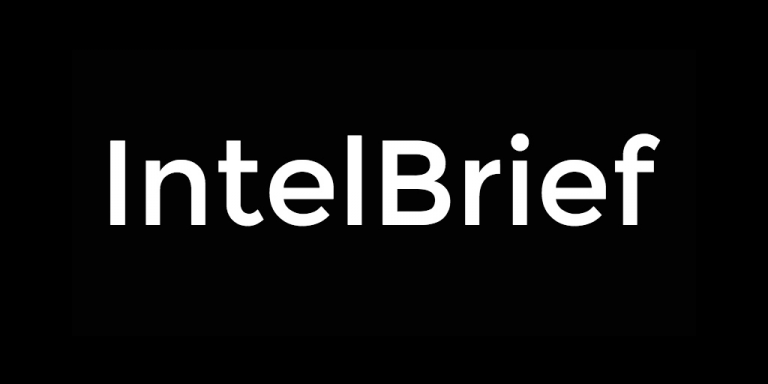INTELBRIEF
October 16, 2017
TSC IntelBrief: President Trump’s New Iran Strategy

• On October 13, U.S. President Donald Trump outlined a new strategy but no major new steps to counter Iran’s destabilizing regional activities and ballistic missile program.
• The President demanded Congress address those issues, which were left out of the 2015 Joint Comprehensive Plan of Action (JCPOA) nuclear agreement with Tehran, though Congress lacks consensus on whether or how to do so.
• Much of the President’s new strategy depends on cooperation from U.S. allies and co-signatories in Europe though they are unlikely to fully cooperate.
• President Trump can abrogate the agreement outright by reimposing sanctions under his own authority, leaving the fate of the JCPOA unclear.
On October 13, President Trump announced a new U.S. strategy to constrain Iran, following a six-month policy review that examined how Washington might counter Iranian policies it objects to that were not addressed in the landmark 2015 multilateral Iran nuclear agreement, the Joint Comprehensive Plan of Action (JCPOA). An accompanying White House fact sheet stated that the United States, 'will work to deny the Iranian Regime - and especially the Islamic Revolutionary Guard Corps (IRGC) - funding for its malign activities' and 'will counter threats to the United States and our allies from ballistic missiles and other asymmetric weapons.' On the nuclear deal, President Trump declined to renew a congressionally-mandated certification of Iranian compliance, on the grounds that Iran’s ongoing aggressive behavior violates the ‘spirit' of the deal. The President also asked Congress to enact legislation to redress the JCPOA’s alleged deficiencies, and threatened to use his authority to withdraw from the JCPOA if Congress failed to act. He did not re-impose U.S. sanctions on Iran, an action that would have effectively withdrawn the United States from the JCPOA.
The President has based his longstanding criticism of the JCPOA on what detractors call its failure to address all aspects of Iran’s aggressive behavior; particularly Tehran’s support for regional governments and factions opposed by the U.S., such as the Assad regime in Syria, Lebanese Hezbollah, Iraqi Shi’a militias, and the Zaidi Shia Houthi rebels in Yemen. However, while Mr. Trump’s announcement focused on the IRGC’s support for these groups and the terrorist acts some of the groups have committed, the new strategy did not outline any major new steps to roll back the IRGC’s regional operations. In concert with the speech, the IRGC was designated as a 'terrorism supporting entity' (not as a 'Foreign Terrorist Organization,' FTO), but the new designation imposed no significant new penalties on the IRGC that are not already in force. Also, no new measures were announced to counter Iran’s extensive involvement in Syria, where the IRGC and its chief proxy, Lebanese Hezbollah, have been pivotal to the survival of President Bashar al-Assad’s regime. Regarding Tehran’s ballistic missile program, which senior U.S. intelligence directors term 'the largest in the Middle East,' neither the JCPOA nor the related U.N. Security Council Resolution 2231 mandate any restrictions on its development or growth. The President’s strategy announcement also declined to specify additional actions to limit that program, beyond requesting allied support to help counter it.
The President appeared to try to justify his new policy by reviewing the history of terrorist attacks allegedly backed by Tehran. In doing so, he associated Iran with al-Qaeda and the group’s 1998 bombings of the U.S. embassies in Kenya and Tanzania—attacks in which no Iranian role has been credibly established. Iran has largely been at odds with al-Qaeda and other Sunni jihadist organizations, including the so-called Islamic State. The President also sought to tie Iran to North Korea, evoking President George W. Bush’s 2002 'axis of evil' formulation.
The President’s speech leaves the fate of the JCPOA unclear. There is uncertainty as to whether Congress can reach agreement on the deal-strengthening legislation the President has demanded, such as a law that would re-impose sanctions unless Iran agrees to extend the expiration of the JCPOA’s nuclear restrictions. Failure to enact such legislation would increase the potential for President Trump to abrogate the agreement outright by re-imposing sanctions under his own authority. Were either Congress or President Trump to re-impose sanctions on Iran, the JCPOA would almost certainly collapse. Major international companies would exit the Iranian market, while Iranian hardliners would insist that staying in the deal was no longer in Iran’s interests.
Despite his unilateral approach, much of the President’s new strategy depends on cooperation from the United States’ allies and co-signatories in Europe. However, until it is certain that the United States will remain in the JCPOA, they are unlikely to cooperate fully with any new U.S. strategy toward Iran. The three European allies that negotiated the JCPOA alongside the United States—Britain, France, and Germany—immediately rebutted the President’s speech and insisted the United States remain in the JCPOA; while indicating some willingness to work with Washington to limit Iran’s ballistic missile program and its regional activities.
Iran’s path forward is clear. Iranian leaders criticized the statement and vowed to continue adhering to the agreement, in so doing claiming credit for acting responsibly. Iran’s leaders are likely confident that nothing that President Trump announced will adversely affect Iran’s expanding regional influence. Any path for the United States is uncertain, given cross-currents including the President’s fervent opposition to the JCPOA, Congress’ struggles to pass controversial legislation, the stance taken by Washington’s allies, and October 15 comments by U.S. Secretary of State Rex Tillerson that the Administration hoped to ‘address the flaws in the agreement by staying within the agreement.’
.
For tailored research and analysis, please contact: info@thesoufancenter.org
.
.